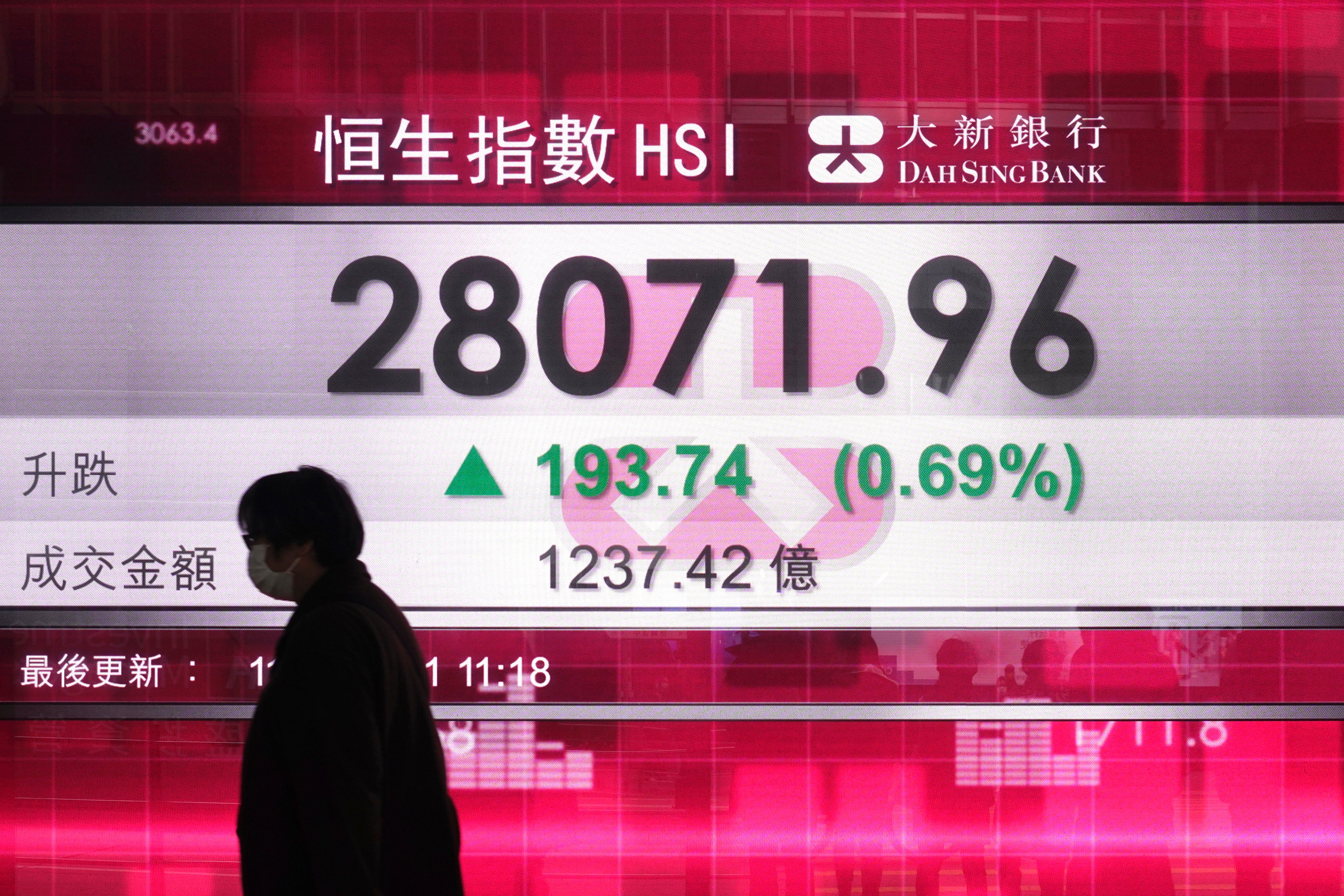Asian shares mixed amid economic aid hopes, pandemic fears
Asian shares are mixed as hopes for more U.S. economic aid are countered by concerns over damage from the pandemic

Your support helps us to tell the story
From reproductive rights to climate change to Big Tech, The Independent is on the ground when the story is developing. Whether it's investigating the financials of Elon Musk's pro-Trump PAC or producing our latest documentary, 'The A Word', which shines a light on the American women fighting for reproductive rights, we know how important it is to parse out the facts from the messaging.
At such a critical moment in US history, we need reporters on the ground. Your donation allows us to keep sending journalists to speak to both sides of the story.
The Independent is trusted by Americans across the entire political spectrum. And unlike many other quality news outlets, we choose not to lock Americans out of our reporting and analysis with paywalls. We believe quality journalism should be available to everyone, paid for by those who can afford it.
Your support makes all the difference.Asian shares were mixed Monday as hopes for more U.S. economic aid were countered by fears over spreading damage from the pandemic
Traders continued to be cheered by prospects that the incoming administration of President-elect Joe Biden will pump more aid into the U.S. economy, a move that will help Asia and other export-driven nations.
South Korea's Kospi gained 0.2% to 3,157.72. Australia's S&P/ASX 200 lost 0.9% to 6,697.20. Hong Kong's Hang Seng edged up 0.2% to 27,943.86, while the Shanghai Composite fell 0.9% to 3,539.88.
Japanese markets were closed for a national holiday. Adding to concerns over surging numbers of coronavirus infections, another new variant of the virus was reported over the weekend among several people who had arrived from Brazil.
“A resurgence of COVID infections, with evidence of a more infectious, new strains taking hold in Asia, beyond the West, suggests that recovery and vaccine hopes also ride the back of the Tiger,” said Venkateswaran Lavanya of Mizuho Bank in Singapore, referring to the peril of the situation.
Japanese Prime Minister Yoshihide Suga has taken care to spare the world’s third largest economy as much as possible from risks of sinking further, even as coronavirus cases have surged recently.
Suga’s declaration of a state of emergency for the Tokyo area, which kicked in Friday, focuses on asking restaurants to close at 8 p.m. Critics fear that’s not enough, and Suga’s support ratings are sinking. Cries for his ouster are likely to grow if the upward curb in infections doesn’t flatten in a month, as he has promised.
Wall Street ended last week with more milestones, largely shrugging off another discouraging jobs report. The S&P 500 rose 0.5%, its second straight record high. The Dow Jones Industrial Average and Nasdaq composite all closed at new highs.
The S&P 500 rose 20.89 points to 3,824.68. The Dow gained 0.2%, to 31,097.97. The Nasdaq climbed 1%, to 13,201.98. The Russell 2000 index of small-cap stocks dropped 0.2%, to 2,091.66. It ended the week with a 5.9% gain, well ahead of the 1.8% gain for the big stocks in the S&P 500.
Hopes are high for rollouts of coronavirus vaccines. But the reports of new versions of the virus are setting off new worries, as some experts believe more studies are needed to see if available vaccines will be effective in curbing those versions of the virus.
In energy trading, benchmark U.S. crude fell 59 cents to $51.65 a barrel in electronic trading on the New York Mercantile Exchange. It gained $1.41 to $52.24 per barrel on Friday. Brent crude, the international standard, shed 89 cents to $55.10 a barrel.
In currency trading, the U.S. dollar edged up to 104.12 Japanese yen from 103.95. The euro cost $1.2188, down from $1.2220.
___
AP Business Writers Stan Choe, Damian J. Troise and Alex Veiga contributed.